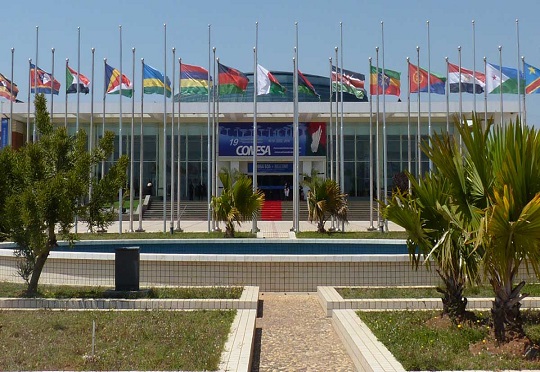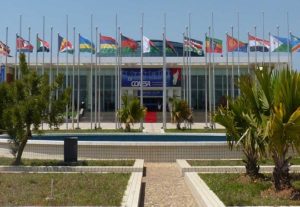
 COMESA convened a virtual meeting to approve a harmonized set of regional guidelines developed to facilitate movement of goods and services across the region during the COVID-19 pandemic.
COMESA convened a virtual meeting to approve a harmonized set of regional guidelines developed to facilitate movement of goods and services across the region during the COVID-19 pandemic.
The meeting brought together ministers in charge of coordination of COMESA activities at the national level. They underscored the need for an online platform for exchange of information on availability of essential products within the COMESA Member States during and after the COVID-19 pandemic period.
The new guidelines provide common measures and practices to be applied across the 21 COMESA countries. In developing the guidelines, reference was made to those of the East African Community, the Southern Africa Development Community, and the African Union to ensure a seamless application of trade facilitation measures in the region.
In her statement to the Council, COMESA Secretary General Chileshe Kapwepwe said the regional guidelines were now critical for a coordinated and harmonized response, to ensure the collective efforts served to reinforce, and not undermine each other.
”The impact of COVID-19 has made it clear that as a region we need to strengthen and integrate regional policies to take into account the adverse social-economic and political impacts and to develop strategies to support and facilitate quick recovery of our economies,” she said.
The Guidelines seek to address disruptions in the regional supply of essential goods, which have been attributed to the diverse COVID-19 measures being applied in Member States. Such disruptions have affected the flow of essential commodities including food and pharmaceuticals.
Under the guidelines, Member States will electronically publish any newly introduced trade and customs- related measures in response to the pandemic and share it periodically with the COMESA Secretariat.
Indicative list of essential goods, based on the latest Editions of the World Customs Organization (WCO) Harmonized System (HS) classifications will also be published to facilitate clearance of customs and border requirements.
The guidelines provide common measures and practices to be applied across the COMESA region and covers facilitation of cross-border movement of relief and essential supplies, transportation of goods and cross border freight transport operations, regulation and control of trucks/vehicles, aircraft and vessels carrying essential goods and services.
They also cover trade in services, customs/revenue authorities support to the economy and sustaining of supply chain continuity and monitoring and evaluation mechanism and sharing of best practices.
A socioeconomic study will be conducted by the COMESA Secretariat analyzing the impact of COVID 19 in Member States. The study will inform additional response and mitigation interventions.
In addition, the ministers approved a reduction of 10% of the Secretariat budget following suppressed activities as a result of the COVID-19 pandemic and confer the benefit to the Member States in their annual contributions.
The ministers also agreed on the need to ease export/import restrictions to facilitate movement of pharmaceutical and other essential goods as well as free movement of health professionals across the region.
